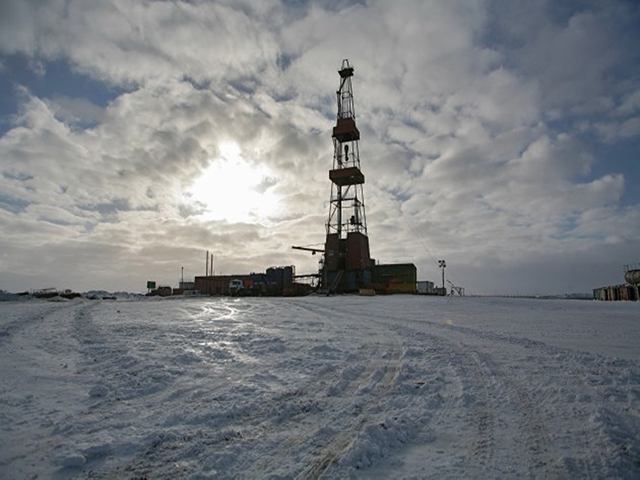
A Norwegian drill rig owner is supplying Russian oil giant Rosneft and Exxon Mobil with the kind of high technology that will be barred under US and European Union sanctions taking effect as soon as Friday.
Though the EU said it will deny export licenses for equipment intended for deep-water and arctic oil production, Rosneft’s six rig leases from Seadrill North Atlantic Drilling unit, signed July 29, appear to thwart sanctions intended to block Russian oil companies from obtaining Western drilling expertise.
Seadrill’s unit can proceed with the Rosneft contracts, worth $4.25billion, because they were signed before the sanctions take effect, said Rune Magnus Lundetrae, Seadrill’s chief financial officer.
The drilling contracts show how the latest round of international sanctions may have only minimal impact on Russia’s oil industry, at least in the short-term.
“This is not exactly a full, frontal assault on the Russian economy,” said Frances Hudson, who helps oversee $305billion as global thematic strategist at Standard Life Investments. The sanctions “are just nibbling around the edges” of Russia’s energy sector.
The European Union and the US decided to tighten sanctions against Russia over its support of separatists in eastern Ukraine. The new measures target the banking, energy and defense industries, threatening business in Russia for companies from BP to Siemens and Renault.
It is initially unclear how sanctions might affect Seadrill and its unit, North Atlantic Drilling, since they have roots in multiple countries.
Seadrill owns 70% of North Atlantic Drilling, and the companies are controlled by billionaire John Fredriksen, a Norway-born Cypriot citizen whose nickname is the Viking King.
Both companies are incorporated in Hamilton, Bermuda, and Seadrill lists its headquarters as London, while North Atlantic Drilling is managed from Norway.
“We understand that the sanctions will be possibly valid from Friday, August 1, and apply to future contracts. And these contracts were signed July 29,” Lundetrae said yesterday in a phone interview.
Norway is not part of the EU, though its government has signaled it will probably abide by the sanctions against Russia. Seadrill’s Lundetrae declined to comment on which laws the contracts might be governed by.
Rosneft was first to announce yesterday it had locked in its contracts with the Seadrill unit, which is a piece of the maritime empire controlled by Fredriksen.
“Entering into long-term offshore drilling agreements will allow Rosneft to ensure implementation of exploration and development of its harsh environment offshore license areas,” Rosneft chief executive Officer Igor Sechin said in the statement.
The US and European Union will not be able to impose an airtight block on the technologies they want to keep from the Russians, said Bryan Early, assistant professor of political science at the State University of New York at Albany who is writing a book about how countries thwart sanctions.
“They will be able to find some replacement technology on the international marketplace,” he said.
The sanctions enacted thus far against Russia’s energy sector have left untouched the sprawling natural gas industry and so-called conventional crude production that generate more than half the national budget. The bans have targeted a narrow list of gear and technologies used in deep-water, Arctic and shale prospects, none of which are key to Russia’s current or near-term oil output, Hudson said.
Exxon, which has partnered with Rosneft on Russian oil projects for more than a decade, expanded its relationship with the Moscow-based company in 2011 by signing a $3.2billion exploration pact.
Chairman and chief executive Rex Tillerson expressed doubts in May that sanctions would prove effective. Exxon spokesman Alan Jeffers said yesterday that the Texas-based company still was assessing the sanctions.
North Atlantic Drilling’s agreement with Rosneft provides six offshore rigs to the Russian company through 2022.
Under a letter of intent announced in May, North Atlantic Drilling and at least one other Fredriksen-owned company are to provide as many as nine offshore rigs to Rosneft, Lundetrae said. The six rigs are part of the nine-rig deal, he said.
Rosneft is also set to buy a stake in the Seadrill unit, which it could increase to as much as 50% over time, people familiar with the deal said in May.